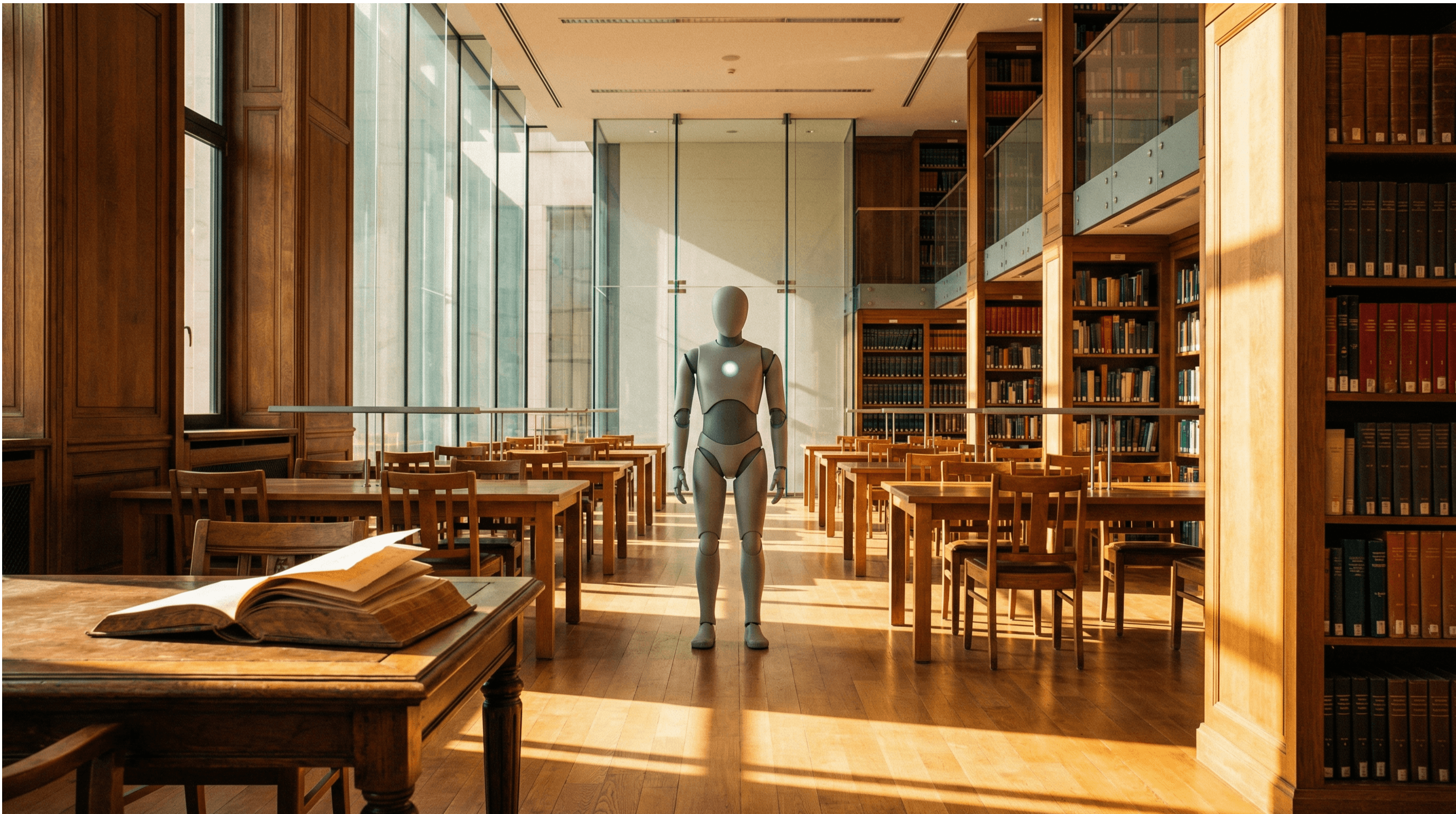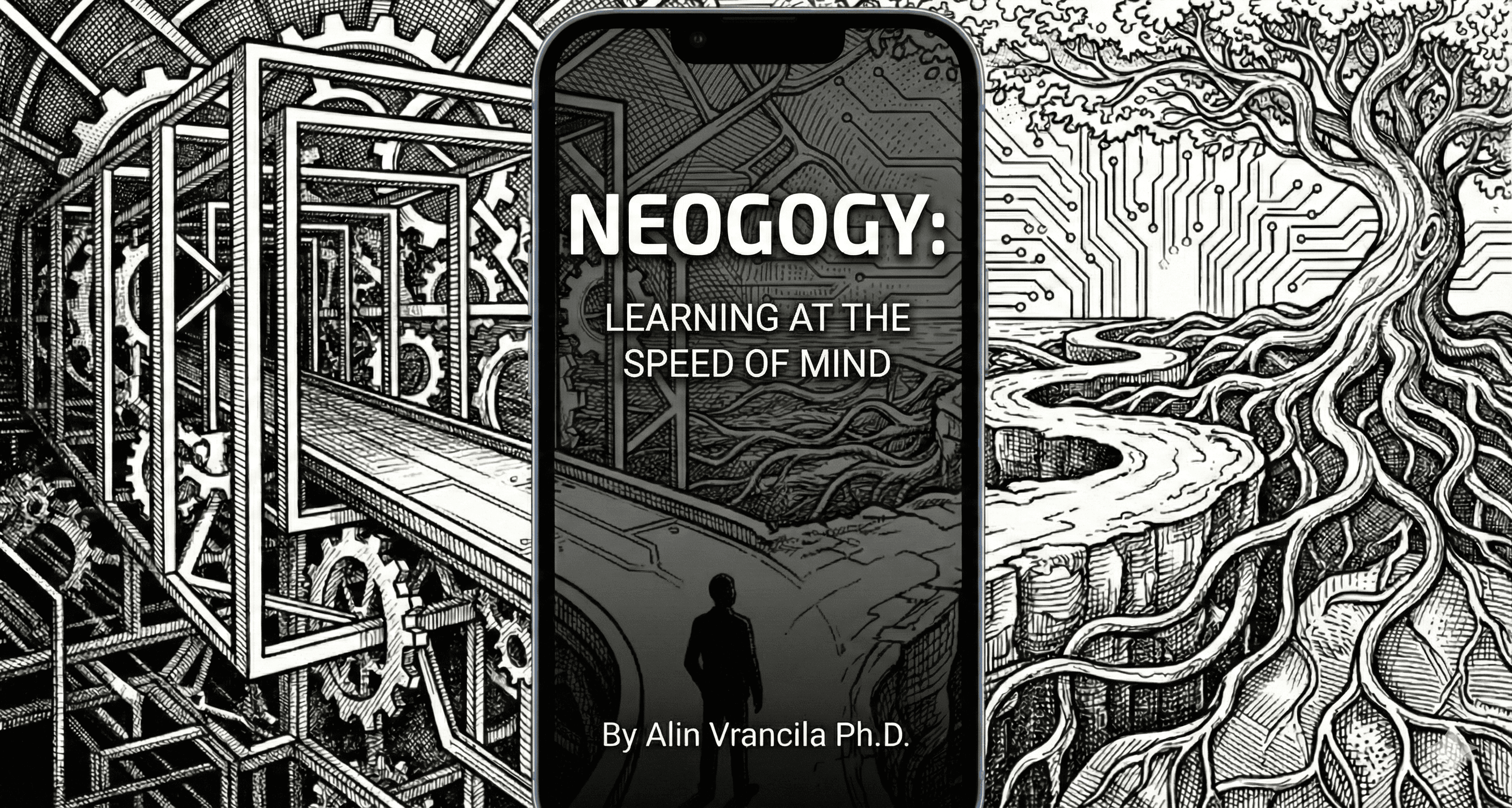The future of learning isn't just about AI; it's a new reality entirely.
A team of researchers at Northwestern University achieved something that sounds like science fiction but is very much a scientific fact. They successfully teleported a quantum state of light across more than 30 kilometers of ordinary internet fiber, the same cables that were simultaneously carrying your emails, video calls, and cat videos [1, 2]. Let me be clear about what this means, because the word "teleportation" can be misleading. No physical objects were beamed across space like in Star Trek (one of my fav shows). Instead, what happened was far more subtle and, in many ways, more profound.
Understanding Quantum Teleportation: It's not magic
Consider quantum teleportation as the ultimate form of communication, where the message reaches its destination flawlessly each time. In the classical world, when you send information from point A to point B, something physical has to make that journey. Light pulses travel through fiber optic cables, radio waves propagate through the air, or electrons flow through copper wires. The information rides along on these physical carriers.
Quantum teleportation works differently. It exploits one of the strangest phenomena in physics, called quantum entanglement. When two particles become entangled, they form a connection that persists regardless of the distance between them. Change the state of one particle, and its entangled partner instantly "knows" about it, even if it's on the other side of the universe. Einstein famously called this "spooky action at a distance" because it seemed to violate everything we know about how the world works.
Here's what the Northwestern team accomplished. They created pairs of entangled photons, those fundamental particles of light. They kept one photon at the starting point and sent its entangled partner to the destination 30 kilometers away. Then, through a process called a "destructive measurement," they transferred the quantum state of a third photon onto the distant entangled partner. The original photon's state was destroyed in the process, but its information appeared perfectly encoded on the photon at the other end. The information itself never traveled through the cable. It simply appeared at the destination, as if by magic.
What makes this achievement truly remarkable is that they did it while regular internet traffic was flowing through the same fiber optic cables. Professor Prem Kumar, who led the study, put it this way: "Quantum teleportation has the ability to provide quantum connectivity securely between geographically distant nodes. But many people have long assumed that nobody would build specialized infrastructure to send particles of light. If we choose the wavelengths properly, we won't have to build new infrastructure. Classical communications and quantum communications can coexist" [1].
This is the breakthrough that changes everything. We don't need to build a separate quantum internet from scratch. We can use the infrastructure we already have. And here's the truly powerful part: any attempt to intercept or eavesdrop on a quantum signal immediately destroys the information. It's physically impossible to hack. This could be the end of data breaches as we know them.
The Quantum AI Revolution: A New Kind of Intelligence
But as I read about this achievement, a familiar unease settled over me. It's the same feeling I've described in my work on the AI learning revolution (www.alinvrancila.com/blog). We are so captivated by the technological marvel that we're failing to ask the far more important question: what does this mean for us as thinking, learning human beings?
The quantum internet isn't just a faster, more secure pipe for data. It's the foundation for an entirely new generation of artificial intelligence. If today's AI models are powerful pattern matchers constrained by the linear logic of classical computing, Quantum AI will be something else entirely. It will operate probabilistically, exploring and weighing countless possibilities simultaneously, not sequentially.
Research on the future of education suggests that this could lead to AI systems that better approximate aspects of human cognition we thought were uniquely ours: intuition, analogical thinking, even moral reasoning [3]. Imagine an AI that doesn't just answer your questions but anticipates them before you ask. An AI that doesn't just generate text but crafts narratives with a genuine understanding of human emotion and context. An AI that doesn't just solve problems but collaborates in the creative process, offering insights that are not merely logical but truly intuitive.
This is the promise of Quantum AI. It also represents a fundamental challenge to our understanding of what it means to be intelligent, to be human.
Here lies the danger. Just as we are beginning to grapple with the cognitive consequences of offloading our thinking to classical AI, what I've called the "Great Cognitive Heist," we are on the verge of a technology that will be exponentially more capable. If we are not careful, we will not just outsource our tasks. We will outsource our very capacity for deep, critical, and creative thought. The question is no longer just "what can AI do?" but "what will be left for us to do, and more importantly, to think?"
The Major Crisis in Our (online) Classrooms
This brings us to the heart of the matter: our educational institutions. They are already struggling to adapt to the current wave of AI. Many are either banning it outright or embracing it with a superficial, tool-based approach that misses the deeper implications. The 30% Rule, that seductive idea that we can simply offload 70% of our work to AI and keep the "human" 30%, is a dangerous illusion that is already leading to measurable cognitive atrophy [4].
Now imagine a world with Quantum AI. The temptation to offload even more of our cognitive work will be overwhelming. Why grapple with a complex problem when a Quantum AI can explore every possible solution in the blink of an eye? Why struggle to write a compelling story when an AI can generate a masterpiece in seconds, perfectly tailored to your audience?
The risk is not just that students will stop doing the work. It's that they will lose the ability to do it at all. The very cognitive muscles we need to build, critical thinking, creativity, deep analysis, the ability to sit with ambiguity and work through it, will atrophy from disuse. We're not just talking about a skills gap. We're talking about a fundamental erosion of human cognitive capacity.
Our current educational models, still largely based on the industrial era paradigm of knowledge transmission, are completely inadequate for this new reality. We are teaching our students to compete with machines in a race they are destined to lose. We need a fundamentally different approach, a new pedagogy designed not to resist technology but to cultivate the uniquely human capacities that will be more valuable than ever in the quantum age.
Neogogy: Learning Redesigned for the Quantum Era
This is where we must turn our attention to Neogogy, the educational framework I have been developing for precisely this moment in history [5]. Neogogy is not just another instructional design model or a new set of teaching techniques. It is a fundamental rethinking of how we learn in an age when machines can think.
Neogogy is built on a foundation of constructivism, social cognitive theory, and experiential learning, but it integrates AI in a radically different way. Not as a crutch that makes work easier, but as a tool for genuine cognitive enhancement. It uses AI to create personalized learning paths, provide immediate feedback, and facilitate collaboration. But it does so with a crucial difference: the focus is always on the learner's cognitive development, not on task completion.
In a Neogogical framework, a student wouldn't use a Quantum AI to simply get the answer to a complex problem. Instead, the AI would act as a Socratic guide, asking probing questions, presenting conflicting perspectives, and challenging the student to explore the problem space from multiple angles. The AI becomes a partner in the learning process, not a substitute for it. The goal is not to make the work easier but to make it more meaningful, more cognitively demanding, and more human.
This approach is essential if we are to prepare our students for the quantum age. We cannot simply teach them how to use the new tools. We must teach them how to think in a world where those tools exist. We must cultivate their ability to ask the right questions, to grapple with genuine ambiguity, to synthesize information from disparate sources, and to create knowledge rather than simply consume it.
In the world of Quantum AI, these skills will be highly valued. These are the capacities that machines, no matter how powerful, cannot replicate. And these are the very skills that Neogogy is designed to build, protect, and enhance.
The Choice(s) Before Us
The successful teleportation of a quantum state over a public fiber network is more than a scientific curiosity. It is a signal, a warning, and an invitation. It signals the imminent arrival of a technological reality that will reshape our world in ways we can barely imagine. It warns us that our current approach to education is dangerously inadequate. And it invites us to make a choice.
We can continue down our current path, allowing our cognitive capacities to be slowly eroded by ever more powerful technologies, or we can seize this moment to fundamentally rethink our approach to learning and human development. We can become passive consumers of technological marvels, or we can be the architects of a future where technology amplifies rather than replaces human intelligence.
The quantum revolution is coming whether we are ready or not. The question is whether we will rise to meet it with wisdom, foresight, and a renewed commitment to what makes us human. The future of human intelligence, and perhaps humanity itself, may depend on how we answer.
References
[1] Northwestern University. (2024, December 20). First demonstration of quantum teleportation over busy Internet cables. Northwestern Now. https://news.northwestern.edu/stories/2024/12/first-demonstration-of-quantum-teleportation-over-busy-internet-cables/
[2] Thomas, J. M., et al. (2024). Quantum teleportation coexisting with classical communication in a deployed fiber network. Optica, 11(12), 1700-1707. https://opg.optica.org/optica/fulltext.cfm?uri=optica-11-12-1700
[3] Moravec, J. (2025, May 1). Quantum computing and the future of education. Education Futures. https://educationfutures.com/post/quantum-computing-future-of-education/
[4] Vrancila, A. (2025, October 30). The 30% Illusion: Why a Simple Rule Won't Save Us from AI. Alin Vrancila. https://alinvrancila.com/blog/the-30-illusion
[5] Neogogy. (n.d.). Neogogy™ - Learning at the Speed of Mind. https://neogogy.ai/





